Speaker Bios
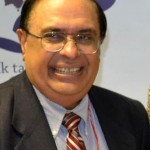 Prof. Dr Atta Ur Rehman
Prof. Dr Atta Ur Rehman
Prof. Atta-ur-Rahman obtained his Ph.D. in organic chemistry from Cambridge University (1968). He has 854 publications in several fields of organic chemistry. Prof. Rahman is the first scientist from the Muslim world to have won the prestigious UNESCO Science Prize (1999) in the 35 year old history of the Prize. In Pakistan, Atta was the Federal Minister for Science and Technology (2000 – 2002), Federal Minister of Education (2002) and Chairman of the Higher Education Commission with the status of a Federal Minister from 2002-2008.
Prof. Atta-ur-Rahman is presently the Coordinator General of COMSTECH, an OIC Ministerial Committee comprising the 57 Ministers of Science & Technology from 57 OIC member countries. He is also the Patron of International Centre of Chemical and Biological Sciences (which comprises a number of institutes, including the Husein Ebrahim Jamal Research Institute of Chemistry and the Dr. Panjwani Center of Molecular Medicine and Drug Development) at Karachi University
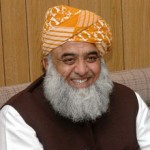 Maulana Fazal-ur-Rahman
Maulana Fazal-ur-Rahman
Maulana Fazal-ur-Rahman, born in June 1953, is a right-wing politician and cleric, serving as the General Secretary and the President of Assembly of Islamic Clerics. He comes from a religious and political family from the southern district of Dera Ismail Khan in Pakistan’s province of Khyber Pakhtunkhwa.
His father, Maulana Mufti Mahmoud, was an Islamic scholar and politician who was the NWFP’s chief minister in the 1970s. Maulana Fazal-ur-Rehman has been elected to National Assembly on multiple occasions. He was appointed as Chairman of the parliamentary committee on foreign affairs in the second government of Prime Minister Benazir Bhutto.
While exercising his duties as a parliamentarian he put forth the point of view of Pakistan government at several international platforms; including his address to the UN committee for Human Rights, as well as the General Assembly of UN on the collective issues of Palestine and Kashmir in 1994.
In the general elections of 2002, he managed to bring the religious political parties of Pakistan from a wide spectrum of sects, on one platform. The masses of the country embraced the idea, as the coalition paid off in the elections. He was Leader of the Opposition between 2004–2007, as he was leading a sizable contingent of opposition parliamentarians.
 Peter Paul Anatol Lieven
Peter Paul Anatol Lieven
Peter Paul Anatol Lieven, born June 1960, is a British author, journalist, and policy analyst. Anatol Lieven has a BA in history and a PhD in political science from the University of Cambridge. He is presently a Senior Researcher at the New America Foundation, where he focuses on US global strategy as well as the War on Terrorism He also serves as Associated Scholar of the Transnational Crisis Project, Chair of International Relations and Terrorism Studies at King’s College London.
Between 2000 and 2005, he was a Senior Associate for Foreign and Security policy at Carnegie Endowment for International Peace. As a journalist he wrote with the Financial Times, The Times (London) covering Pakistan, Afghanistan, the former Soviet Union, and Russia (including the First Chechen War), and wrote from India as a freelancer. After a string of successful books, Anatol authored the book “Pakistan: A Hard Country” in 2011, giving his insight into the country and was selected by the Daily Telegraph and the Economist as a ’2011 Book of the Year’.
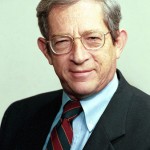 Stephen P. Cohen
Stephen P. Cohen
Stephen P. Cohen is an American political scientist. He is an expert on Pakistan, India, and South Asian security. He is a senior fellow in foreign policy studies at the Brookings Institution and an emeritus professor at the University of Illinois at Urbana-Champaign. In 2004, he was named by the World Affairs Councils of America as one of America’s 500 most influential people in the area of foreign policy.
Stephen has conducted research in Britain, India, Pakistan, the former Soviet Union, and Japan and has been a visiting professor both in Tokyo and at Andhra University, India. He spent time in India at the Ford Foundation as a Scholar-in-Residence, also being fluent in Hindi. He has authored a number of books aimed at South Asia, including books such as “The Idea of Pakistan (2004)” and “Arming Without Aiming: India’s Military Modernization (2010)”.
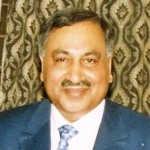 Dr Z U Khan
Dr Z U Khan
Prof. Dr. Z. U. Khan OBE, FRS is a man of many talents. His Contributions in the areas of Science and Technology, law and Criminal Justice, Immigration, Race Relations, Health, Education, Management and Administration at the International level are well known and well documented. He has served as a Presiding Justice in London, UK Commissioner and Regional Chairman of the Commission for Racial Equality and Director General Scientific Research. He is also the sitting Chairman of the International Human Rights Observers and President of the Scottish Council for Minority Rights.
He has been associated with the NRB, Prime Minister’s Secretariat, Govt. of Pakistan for five years leading the Think Tank on Law Enforcement and Criminal Justice. His work included Separation of Executive from the Judiciary, Police Order 2002, Prosecution Ordinance 2002 and Establishment of Small Causes and Minor Offences Courts.
Prof. Dr. Khan has served as Adviser to the President AJ&K with the status of the minister. He is one of the two patrons of Pakistani Professionals’ Forum, a London based organisation of individuals of Pakistani origin from higher professions. At present he is also heading EU Think Tank on CR, HR and diplomacy.
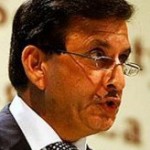 Lt. Gen. Syed Athar Ali
Lt. Gen. Syed Athar Ali
Lt. Gen. Syed Athar Ali served as Federal Secretary Defence. Lt.Gen Ali held various command , staff and instructional appointments which include representation of Pakistan on U.N Peace keeping mission in Sierra Leone in the dual capacity of Deputy Force Commander and Chief observer for over two years. He served as a Director of Pakistan International Airlines Corporation since November 2008. He is a recepient of Hilal- i-Imtiaz(Military). He holds Masters Degree in War studies from National Defence University Islamabad and International Relations from Columbia University USA.
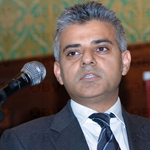 Sadiq Khan MP
Sadiq Khan MP
Sadiq Khan is the Member of Parliament for Tooting, where he has lived all his life. He was first elected as MP for Tooting on 5th May 2005 and was re-elected on 6th May 2010. He is Shadow Lord Chancellor and Shadow Secretary of State for Justice (with responsibility for political and constitutional reform), having been elected to the Shadow Cabinet on October 7th 2010, and a member of the Labour Party’s National Executive Committee (NEC), the Labour Party’s governing and policy-making body.
In October 2010 he became the first ever BAME politician to be elected to the Labour Party’s Shadow Cabinet, and was then the youngest member of Ed Miliband’s Shadow Cabinet. He was previously Shadow Secretary of State for Transport, and served as the Minister of State for Transport during the last Labour government.
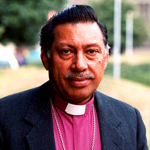 Rt. Rev. Dr. Alexander John Malik
Rt. Rev. Dr. Alexander John Malik
The Rt. Rev. Dr. Alexander John Malik was consecrated and enthroned Bishop of Lahore in 1980.After graduating from Punjab University, he joined the clergy .He got his diploma from Bishop’s college Calcutta and degree of Bachelor of divinity from Serampur University, India. He got his Master’s from McGil University, Canada and his Doctorate of Divinity from Wheaton College, USA.
In 1989 he was selected member Anglican Consultative Council’ Standing Committee, the only Asian to get this honour so far. He also has the honour to be the member of the Global Board of the United Bible Societies. He has also been part of Pakistan delegation to UN General Assembly, where, at different forums, he convincingly explained the Pakistan’s just stand on Kashmir. Dr. John Malik is a great advocate of Muslim-Christian understanding and interfaith dialogue. For his efforts and public service he has been awarded Sitar-I-Imtiaz twice.
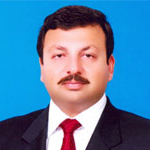 Nawabzada Malik Amad Khan
Nawabzada Malik Amad Khan
Nawabzada Malik Amad Khan, born March 1973, is the Minister of State for Foreign Affairs and member of Majlis-e-Shoora since 2008. He is one of the youngest members of the Cabinet of Pakistan. Having completed his secondary education in Islamabad, Khan enrolled in Pakistan Military Academy in Kakul, graduating from the school in 1992. He was then commissioned in the 26th Cavalry of Pakistan Army Armoured Corps Regiment. He resigned his commission in 1999.
In February 2008, he ran as an independent and was elected to Majlis-e-Shoora (the Pakistani Parliament) from his home constituency in Mianwali. He later joined the Pakistan Peoples Party because of its progressive agenda. After starting his term, Malik Amad Khan has been a member of three parliamentary committees: Standing Committee on Public Accounts, Standing Committee, Standing Committee on Information & Broadcasting, and Standing Committee on Kashmir Affairs & Northern Areas.
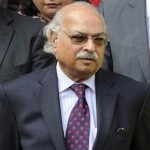 HE Wajid Sahamsul Hassan
HE Wajid Sahamsul Hassan
Wajid Shamsul Hasan is Pakistan’s envoy to the Court of St.James for five years. A journalist by profession Wajid Shamsul Hasan had earlier served as Pakistan’s High Commissioner to the UK from June 8 1994 to November 21 1996.
Wajid Shamsul Hasan has a post graduate degree in International Relations. Earlier, in 1968, he did an extensive course for senior journalists in the United Kingdom after he was awarded the prestigious Commonwealth Press Union Scholarship. While he received his practical training in journalism at the Bristol Evening Post and London’s Evening Standards, he completed short academic courses at Oxford (Queen Elizabeth Hall) and Thomson Media Foundation at Cardiff. He was part of the Presidential entourage at the crucial Simla Peace Summit with India in 1972.
In early 1989 he left Daily News to become Chairman of the National Press Trust, largest conglomerate of more than 14 newspapers, magazines in Pakistan – both in English and Urdu languages, published from the four provinces including Islamabad. He also served former Prime Minister of Pakistan late Ms Benazir Bhutto as Advisor.
Hasan is a prolific writer and a sought after commentator on South Asia and world affairs including Middle East and make regular appearances on international media networks sharing his views on the developing issues related to South Asia and Middle East.
In the context of Pakistan’s domestic politics, Hasan is respected for his secular and liberal views and commitment to the cause of democracy and empowerment of the people especially women and minorities.
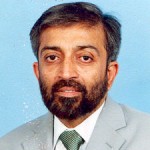 Dr. Farooq Sattar
Dr. Farooq Sattar
Farooq Sattar Pirwani is a politician from Karachi, Sindh, Pakistan. Farooq Sattar is Deputy Convener and Parliamentary leader of the Muttahida Qaumi Movement (MQM), a political party in Pakistan. He has also served as Provincial Minister in the Sindh Cabinet for Local Bodies and is one of the senior Members of the MQM Co-Ordination Committee. Dr Farooq Sattar was also heading Foreign Relations Committee in the Senate. A medical doctor by training, he received M.B.B.S degree from Sindh Medical College in 1986. He is a member of Memon community. He was elected mayor of Karachi, at age of 28, youngest to hold this position.
On 16 March 2008, he was nominated as Prime Minister of Pakistan candidate by the MQM. He is currently serving as the federal minister for Overseas Pakistanis.
JoAnne Wagner
JoAnne Wagner, J.D., is the Department of State Deputy Director for Pakistan, a career Foreign Service Officer, and a 2011 graduate of the National War College.
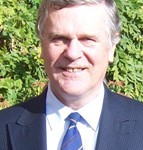 Robin Brooke-Smith BA (Hons), MSc, PhD, FRSA
Robin Brooke-Smith BA (Hons), MSc, PhD, FRSA
Robin Brooke-Smith completed his PhD at the University of Birmingham in International Education Leadership. He was Principal of Edwardes College, University of Peshawar in Pakistan, Principal of the University of Toronto Schools and a Holgate Fellow at Grey College Durham University. He has taught at Shrewsbury School and Backwell School in Bristol, and was Assistant Director of the British Council in Tanzania. Most recently, he was Director of Consultancy Services at the National Academy for Gifted and Talented Youth at the University of Warwick. He is currently a writer and international educational consultant. He has led expert teams at the European Commission in Brussels and worldwide. He has published extensively on school leadership and his book Leading Learners, Leading Schools (RoutledgeFalmer, London and New York, 2003) has received international recognition. He authored The Scramble for Africa, McMillan, a significant contribution to historical scholarship.
« Back to Future of Pakistan Conference
![[X] Close](http://www.fird.org.uk/wp-content/themes/fird/images/close.png)





